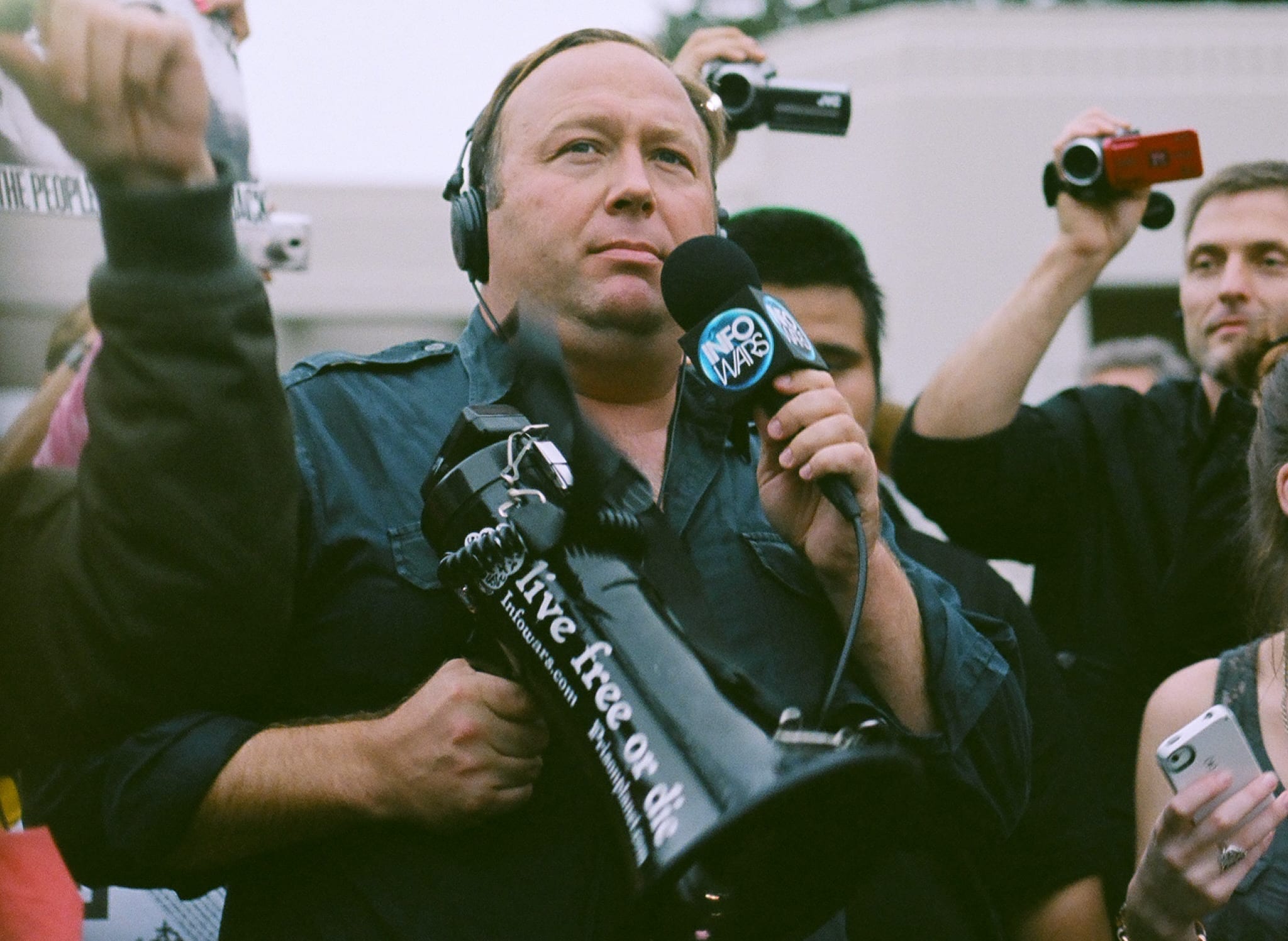Five years have passed since a mass shooting at Sandy Hook Elementary School, yet lawsuits over the killing still remain stuck in court.
At the epicenter of ongoing litigation is Alex Jones, conspiracy theorist and proprietor of the InfoWars website. Jones, writes the New York Times, used his media operation to spread ‘false theories that the massacre was a hoax staged by the government.’ He’s maligned victims, questioned the event’s veracity and suggested it was all a ploy to take down the Second Amendment.
Jones’ antipathy toward Sandy Hook and its aftermath cannot be doubted.
But last Wednesday, Jones’ lawyers and attorneys for the victims argued over definitions and intent. Among the conspiracy theorist’s 2017 broadcasts was an inflammatory piece called “Sandy Hook Vampires Exposed.”
Critics—of whom Jones has plenty—said the production was an affront to the massacre’s young victims and their surviving relatives. His attorneys proposed that InfoWars was condemning the mainstream news media and not innocent lives lost.
The families of nine Sandy Hook victims, reports the Times, filed cases defamation suits against Jones.
Wednesday’s hearing was the first in three separate cases. And if the Times is right, its occurrence raises prickly questions about the public and right to criticize and condemn. Does speaking publicly about the death of a child turn parents into public figures, less defensible to defamation?
Jones has insisted that Sandy Hook was a ‘false flag’—an event staged by actors, meant only to provoke a public outcry and support for gun control.

And his followers have taken their outrage straight to victims’ families, stalking, harassing and blasting death threats over the phone and online.
Citing the Texas Citizens Participation Act—which protects free speech under siege by litigation—Jones has sought to see the suits dismissed. The Times says attorneys for both sides continued to file documents in the hours up until the hearing commenced.
Mark Enoch, serving as Jones’ counsel, says he wasn’t familiar with “Vampires of Sandy Hook” before accepting his client’s case. But Enoch says the man’s strange and incendiary rhetoric is the same sort of “fringe speech” the First Amendment is meant to protect.
“This is not about Sandy Hook,” Enoch said, adding that Jones is “sorry” for one victim’s loss and “acknowledges” that at least one child died in the massacre.
Part of the argument, recapped by the Times and covered by LegalReader in April, makes mention of purported visual discrepancies in victim interviews. Jones claims that a man’s ‘disappearing nose’ was the work of a faulty green screen—evidence, in his mind, of a broadcast carefully staged at an indoor studio. He’s also said that Sandy Hook parents’ campaigning against assault-style rifles has made them public figures, unable to retaliate against what Jones maintains are just opinions.
The presiding judge—Scott Jenkins of the District Court of Travis County—said “it’s a very interesting question of law” as to whether anyone can inadvertently become a public figure in the aftermath of a horrific tragedy.
The Times adds that Jones content has become increasingly censored since the suit began. YouTube and Facebook have both removed some InfoWars content from their websites; Spotify took down a number of Jones’ podcasts under its ‘hate content’ policy.
Sources
In Alex Jones Lawsuit, Lawyers Spar Over an Online Broadcast on Sandy Hook
Sandy Hook Parents Sue Conspiracy Theorist Alex Jones Over Claim Shooting Was ‘Fake’


Join the conversation!